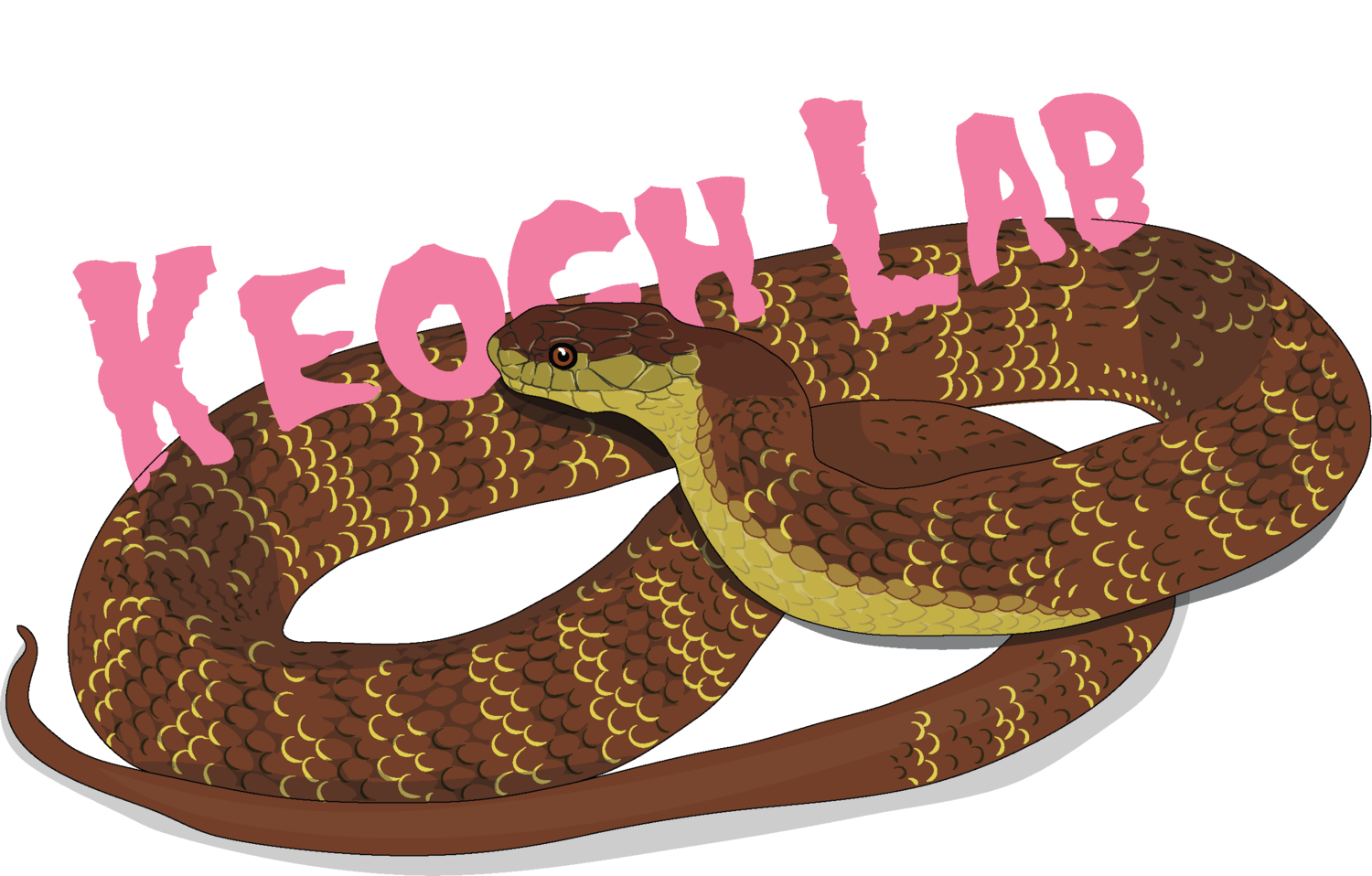Want to join the lab?
I am interested in supervising honours and PhD students and postdocs in any area of research in which I feel confident that I can give useful advice and supervision. Check out what we do and read all of our publications at least twice. This will give you a good feeling for what we do.
Honours & MSc Students: I'm happy to talk about any ideas which students have for potential honours or masters projects, but in practice it is generally easiest (for me) if honours students do projects that are either directly or indirectly associated with projects I am already doing. Check out what we do and our recent publications and then come and talk to me. I only accept a maximum of one new honours or masters student each year. For details on RSB requirements to get in to honours, click here.
PhD Students: I believe strongly that PhD students should do projects which genuinely interest them and that they should take the lead role in everything to do with their project - this includes coming up with the original ideas. There will be no pressure from me for my PhD students to undertake projects associated with my own ARC funded research. Of course I will give you all the help and advice I can as far as the animals, techniques and theory goes, but I feel my main job as a supervisor is to make sure that students come out of my lab fully equipped (in a very broad sense) to be successful in their chosen field. So I'll harass you to apply for grants, give talks, get teaching experience and publish your research. You will need these skills for anything that you do. Check out my advice page for students and study it carefully. There will be a quiz. I generally only accept one new PhD student each year after careful vetting. For details on RSB requirements, applying, scholarships, etc., click here for international students and here for domestic students.
Postdocs: I always try and have postdocs as part of the lab, either self funded through their own Australian fellowships (for example, ARC Postdocs, ARC DECRAS) or overseas fellowships. Please talk to me about options for these as I know a lot about how they work and I've hosted a large number of such fellows - check out our Hall of Fame. I also almost always employ postdoc research associates off my own grants.
Expectations of my lab members: We are a large, productive and happy lab that is doing good science. I find that the best students are those who are serious about their science and careers, whether they be in academia or other areas of biology. Therefore, I have high expectations of all the people in my lab to make sure that we (including me) are getting the most out of our work interaction and experience. I have outlined these minimum requirements below so that you know what you will be getting yourself into before you approach me as a potential lab member. If you believe you cannot meet these minimum expectations, then don't ask me to supervise you. I'm serious about this and I'll ask you (and your referees) about each of these expectations before I agree to anything.
I expect my students to be professional and dedicated to their research project. First, science is fun and interesting. Second, I and the other members of the lab will invest considerable effort to ensure that you have a good working environment and I will make a considerable effort to provide the resources and advice that you require to successfully complete your project. So, to put it bluntly, I'm not interested in supervising unmotivated people. I will only take honours and masters students who are determined from the outset to do a first class job and put in a first class effort. I will only take PhD students who are determined to come out at the end as an expert in their field and make a real scientific contribution. If I know more about the science behind your project than you do when you are done, then something is very wrong.
It's easy for students to lose motivation for writing papers after taking a well earned break following submitting their thesis, but I believe in the saying "your work hasn't been done until it's published". Therefore, everyone in the lab is expected to actively publish the results of their research as soon as it's done and ready. I will bug you to get the papers done irrespective of whether I have collaborated with you on the research. I encourage PhD students to write papers as they complete chunks of their research and publish along the way. Again, this is critically important to your careers. Our publication record demonstrates the success of this approach.
I expect students to actively try and raise funds to support their research by applying for small grants. This experience and skill is very important for your future careers and the funds will allow you to do your planned research without having to cut corners because of financial restrictions.
One of the most important parts of science is communicating your results, so all lab members have to present their research at scientific conferences. Generally, we all make the trip to the annual meeting of the Australian Society of Herpetologists (ASH) to give talks on our research, and many of us also go to other larger international meetings. I consider giving a talk at ASH a time honoured tradition!
Everyone in the lab is expected to be an active member of the Division of Ecology and Evolution (E&E). This is a great department and you have a lot to gain by interacting with others in our group.
